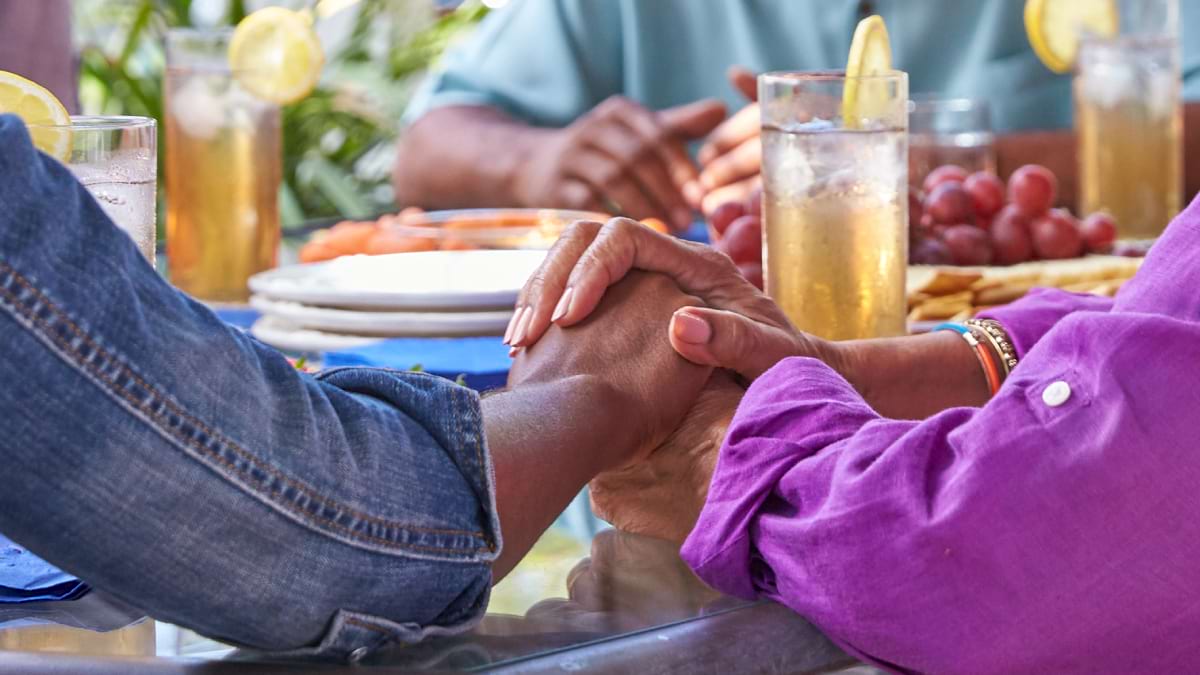We frequently talk about the role that patients play in clinical trials–how they advance medical research, assist scientists in finding potential care options, and offer their time and energy to benefit the lives of others. This is all true. However, one group that is discussed less often in clinical trials is caregivers.
Caregivers go above and beyond to help their loved ones. Whether it’s reminding them to take their medication, shuttling them to and from appointments, or being there to lend their emotional support throughout the clinical trial process, caregivers have critical responsibilities. Studies have shown that caregivers can give patients the best chance possible to have a positive clinical trial experience through their help with diet, medication, and self-management programs.
That being said, caregiving is not an easy task. Various research has shown that family members who provide care to individuals with chronic or disabling conditions experience health risks themselves due to the strain of their increased financial and care responsibilities. Family caregivers make up one in five Americans, making these physical and mental impacts particularly alarming. These unsung heroes deserve consideration and support themselves.
Resources for Caregivers
We want to help caregivers find the right services and support groups to make life a bit easier. To point you in the right direction, we recommend visiting the following websites:
Family Caregiver Alliance
The Family Caregiver Alliance works to improve the quality of life for family caregivers and the people who receive their care. The site has various resources, such as newsletters, support groups, caregivers’ stories, and a family care navigator, to name a few.
Caregiver Action Network
CAN (the National Family Caregivers Association) is a non-profit organization providing education, peer support, and resources to family caregivers across the country free of charge. It has a help desk staffed by caregiving experts, as well as instructional videos and resources that are specific to certain therapeutic areas.
The National Alliance for Caregiving
The National Alliance for Caregiving focuses on advancing research, advocacy, and innovation to improve the lives of caregivers and their families. The website has a virtual toolkit, guidebooks, and content that specifically focuses on IBD caregiving.
National Cancer Institute
NCI offers resources for caregivers who have loved ones with cancer. Their website shares cancer-specific guides for caregivers, including information on cancer basics, how to cope as a caregiver, and managing cancer care.
ASCO Answers Guide to Caregiving (PDF)
This PDF from the American Society of Clinical Oncology (ASCO) shares various questions that caregivers for cancer patients may have. It provides a comprehensive guide that caregivers can use to understand the basics of caregiving, how to tackle caregiving responsibilities at home and at the hospital, how to take care of themselves, and much more.
Atlas of Care
Atlas of Care works with a variety of communities to deliver practical, evidence-based tools and educational experiences to increase people’s empathy, sense of interrelatedness, and ability to care for each other. They offer tools such as a care map to boost empathy and feelings of connection, daily activities, and research on caregivers’ lives.
CareGiving.com
Caregiving.com features the blogs of family caregivers, weekly words of comfort, daily chats, podcasts and free webinars. They offer a community for caregivers to share with and learn from.
This is just a starting point, and there are many other sites that offer a wealth of information for you. If you are a caregiver, we encourage you to find ways to care for yourself as well, whether that be getting a full night’s sleep when you can, eating healthy and exercising, or managing stress. We thank you for all that you do to support your loved one through their clinical trial journey.
For the most current information, follow us on Facebook.


